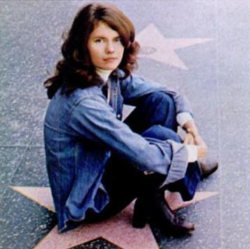Harriet Schock
| Harriet Schock | |
|---|---|

Harriet Schock in 1974
|
|
| Background information | |
| Birth name | Harriet Schoch |
| Born | Texas |
| Genres | Pop |
| Occupation(s) | Singer-songwriter, teacher, author, actor |
| Years active | 1973 — present |
| Labels |
20th Century Records Evening Star Future Schock |
| Associated acts | Helen Reddy, Vicki Carr, Syreeta, Smokey Robinson, Roberta Flack, Carl Anderson |
| Website | Official website |
| Notable instruments | |
| Piano | |
Harriet Schock is an American singer, songwriter, teacher, author, and actress. She made three albums for a major label in the 70s, scoring gold and platinum awards for her Grammy-nominated Ain't No Way to Treat a Lady, before moving into teaching and soundtrack work, and then resuming an ongoing recording career in the 90s.
Schock, whose father was a dermatologist, grew up in Texas as one of two sisters, and was encouraged to play piano from an early age. Her natural ability to play by ear quickly became apparent.
After a brief spell working in advertising, Schock became a staff writer for Colgems-EMI, and, in a deal that fell through, almost became a Columbia Records recording artist. Shortly thereafter, she signed with 20th Century Records, and her recording career began in earnest, with a series of three albums, Hollywood Town, She's Low Clouds (both 1974), and You Don't Know What You're In For (1976), all notable for their pithy lyrical approach, and musical incisiveness. On the strength of these recordings, Schock was twice awarded Cashbox's Best New Female Artist.
During this period, Helen Reddy scored a #8 Billboard Hot 100 with Ain't No Way to Treat a Lady. Schock's original version had appeared on her debut album, Hollywood Town. Reddy recorded further Schock-written songs, while many other artists began to interpret Schock's work, including Roberta Flack,Johnny Mathis,Smokey Robinson, Syreeta, Nancy Wilson, Manfred Mann,Vicki Carr, and Jeannie Kendall.
In addition to "Ain't No Way To Treat A Lady", another widely recorded Harriet Schock song is "First Time On A Ferris Wheel", co-written with Misha Segal. Among the most celebrated versions is Carl Anderson's, which appeared on his eponymous 1986 album for Epic Records. The song was composed during the period in the 80s when Schock worked for Berry Gordy, writing songs for Jobete.
...
Wikipedia
